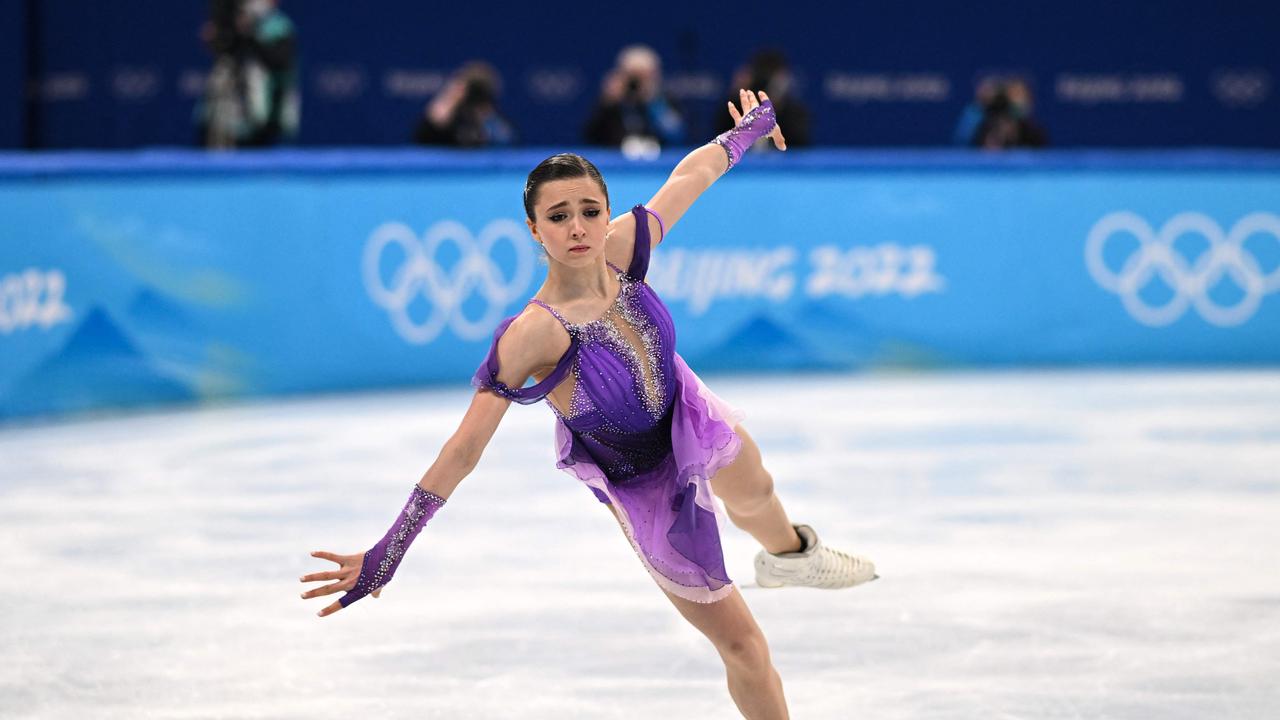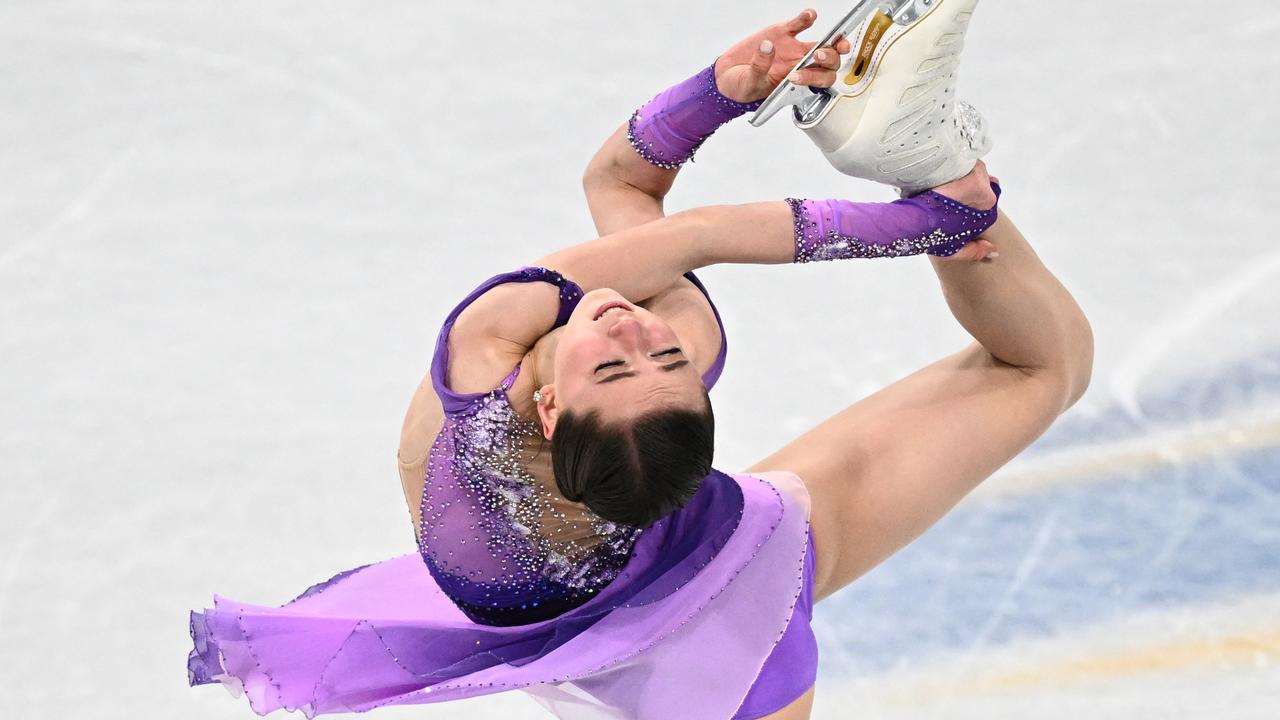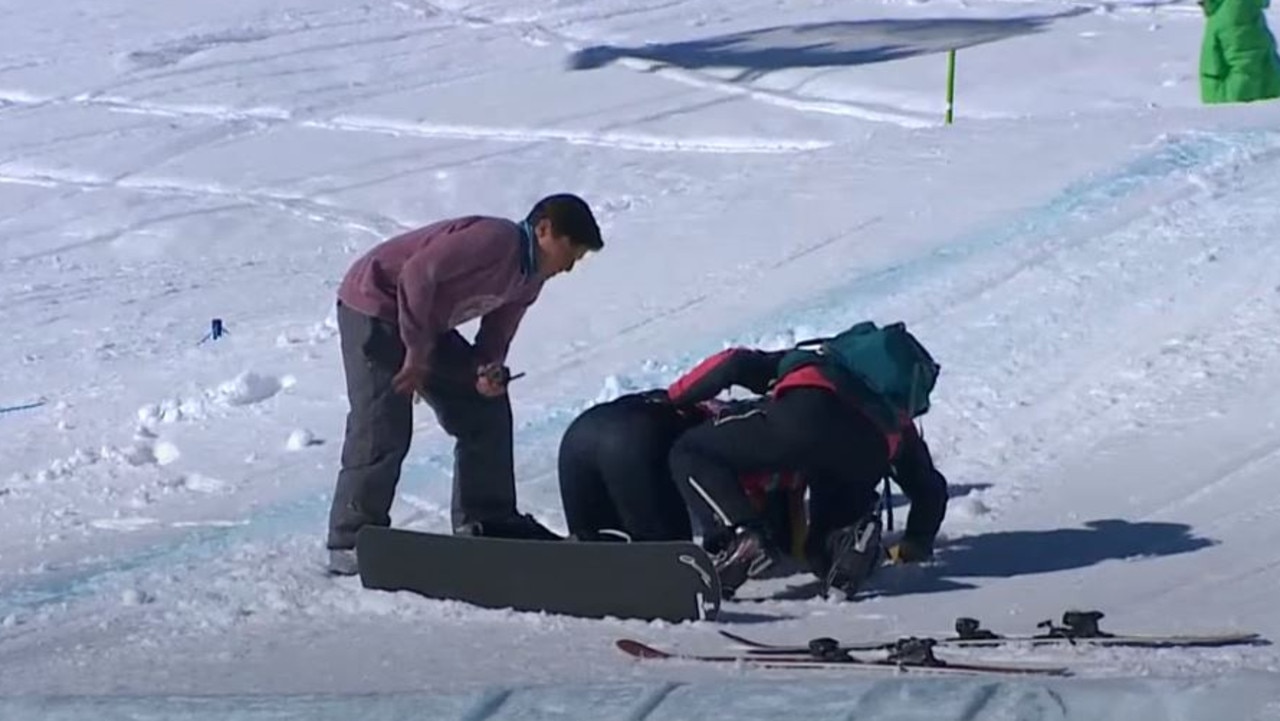Olympics teen freak positive for three substances
A high profile crusader against dirty sport has dropped a hammer on Russia’s teen freak, revealing what is really going on with the gold medallist.
The saga surrounding Russian teen freak Kamila Valieva has taken several more dramatic turns on Wednesday before she skates for individual gold on Thursday at the Beijing Games.
The 15-year-old figure skating phenomenon was plunged further into scandal on Wednesday when a US media report claimed she had tested positive for three substances used to treat heart conditions.
Only one of those three substances is banned under the World Anti-Doping Agency (WADA) code as a performance enhancing substance.
However, the dramatic truth in the murky circumstances surrounding Valieva’s case was brutally exposed on Wednesday when United States Anti-Doping Agency (USADA) boss Travis Tygart broke down the specifics of the substances reported to have been found in Valieva’s system.
The veteran anti-doping crusader said he has reviewed the documents submitted during the hastily convened Court of Arbitration for Sport session on Sunday.
The Court ultimately rejected a protest against Valieva returning to compete at the 2022 Games, triggering global outrage.
She returned to competition on Tuesday in the women’s individual short program despite allegedly testing positive for a banned substance in December.
The Russian team has claimed it was only notified of Valieva’s positive test result the day after the ROC team won the gold medal in the team event — six weeks after she returned the test result.
She now heads into Thursday’ free skating event as the favourite to win gold after finishing the short program with the highest score.

It looks to be an unmitigated disaster for the Olympics with the International Olympic Committee (IOC) announcing the medal ceremony for the event will not be held should Valieva finish in the medal standings as is expected.
A document submitted during the CAS session on Sunday was leaked to the New York Times, revealing the teenager tested positive for trimetazidine, a drug used to treat angina but which is banned for athletes by the WADA because it can boost endurance.
The New York Times reported that her sample also contained the substances Hypoxen and L-Carnitine. They are not on WADA’s prohibited list.
Tygart says he came to the conclusion the cocktail of substances detected in Valieva’s system was “certainly consistent with an intentional use”.
“It raises a whole host of questions that have yet to be determined and what appears to be the case of a pretty deliberate attempt to use substances in order to enhance performance,” Tygart told CNN.
“It’s certainly consistent with an intentional use. The picture it paints is, you’ve got a 15-year-old. Does she have the wherewithal and the knowledge and the financial resources to find two drugs ... to use to increase endurance reduce fatigue? It’s clear there was an effort to use substances and drugs to increase performance.

“I don’t think for a second this young athlete had the financial resources or knowledge to take these three substances to increase performance, or where to even get these three substances.
“It’s using the three that showed the intent of trying three different routes that ultimately give the same impact on performance: increased endurance, reduced shortness of breath, tiredness.”
He described the mix of the three substances as a “trifecta of substances” aimed at enhancing performance.
He said the documents submitted to the CAS show Valieva tested at a “2.1 nanograms per milliliter level”. He says it is “not a trace level”.
Senior IOC member Denis Oswald had told reporters on Tuesday that Valieva informed the CAS panel that she tested positive because of “contamination” from her grandfather’s medicine.
The New York Times report said the grandfather provided a pre-recorded video message to a hearing with Russian anti-doping officials on February 9 in which he said he used trimetazidine.
Valieva’s mother told the same hearing her daughter took Hypoxen for heart “variations”, the Times said.
Russia’s anti-doping agency RUSADA suspended the young skater after the February 9 hearing, only for her to win an appeal. CAS then agreed that she should be able to carry on at the Olympics, citing “exceptional circumstances” including her age.
Valieva has already won one gold in Beijing, playing a starring role to lead Russia to team gold last week, before the doping controversy erupted.
The medals ceremony for that will also not take place in Beijing after it was cancelled at the last minute when news of Valieva’s positive test became widely known.
It puts the spotlight once more on doping by Russian athletes, who are not allowed to take part at these Games under their flag because of a state-sponsored doping program that reached its peak at its home 2014 Sochi Olympics.
Some of Valieva’s fellow skaters made plain their unhappiness that they had to compete against her.
“I don’t know every detail of the case, but from the big picture obviously a doping athlete competing against clean athletes is not fair,” the 16-year-old American skater Alysa Liu said.
There was also sympathy.
Alexia Paganini, competing for Switzerland, said: “I definitely feel sorry for her. She is pretty much a product of the adults around her.” But she added: “Rules are rules and they should be followed.” International Olympic Committee spokesman Mark Adams said: “She is at the centre of a lot speculation and it must be very tough for her.”
— with AFP




